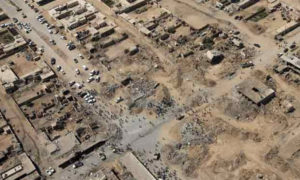SIMPLE FUTURE TENSE:
The simple future tense is used to express an action that
has still to take place. It is also used to indicate a future
event that is part of a plan or arrangment; as,
I shall write a letter = Ez de^ kakej yeke^ nivi^sim.
You will eat your meal here = Hu^ng nan ye^ xue de^ xuon li he^re.
Formation of the Simple Future Tense:
The simple future tense is formed in the same way as the simple
present tense, except that the Future Tense Article ‘DE^’ is used
instead of the present tense article ‘DI’; as,
PersonSingularPlural
———————-
1stEz de^ c,im=I shall goEm de^ c,im=We shall go
2ndTu de^ c,y=You will go Hu^ng de^ c,in=You will go
3rdEw de^ c,i^t=He(she) Ew de^ c,in=They will go
will go
The future article ‘DE^’, does not necessarily precede the verb
immediately as does the present tense article.
In compound verbs, when the ancillary is preverbal, the future article
‘DE^’ must precede the ancillary component; as,
I shall drink water = Ez de^ av e^ ve xuom OR
Ez av e^ de^ ve xuom
I shall lift the load = Ez de^ bar y hel girim OR
Ez bar y de^ hel girim
The future article ‘DE^’, likewise, must precede the complement
and the direct object of the verb, unless the emphasis is turned on
the action, complement or direct object of the verb; as,
I shall be there = Ez de^ li we^re^ bim OR
Ez de^ bim li we^re^
The future article ‘DE^’ follows the subject if the emphasis is put
on the direct object.
Ez li we^re^ de^ bim = I there shall be
Ez nan y de^ xuom = I the meal shall eat
For the NEGATIVE form, ‘DE^’ is replaced by the present negative article
‘NA’.
I shall go = Ez de^ c,im
I shall NOT go = Ez NA c,im
I do NOT go = Ez NA c,im
SIMPLE FUTURE TENSE IN THE PAST:
Future in the past tenses indicate an action which at some time past was
the rightly regarded as Future. All four future tenses may be regarded in the
past.
1-Future simple in the past:
He would go = Ew de^ bi c,i^t
I should write = Ez de^ bi nivi^sim
2-Future cpntinous in the past:
He(she) would be going = Ew ye^(ya) de^ bi c,i^t
I sould be writing = Ez ye^(ya) de^ bi nivi^sim
3-Future perfect in the past:
He(she) would have gone = Ew ye^(ya) de^ c,u^o bu^ot
4-In Kurdish, the future continous in the past is used for both English
Future Continuous in the Past and Future Perfect Continuous; as ,
Ez ye^(ya) de^ bi c,im = I should be going
= I shall have been going
Formation Of Future Simple Tense In The Past:
———————————————
The simple future tense in the past is formed in the same way as the
simple future tense and simple present tense except that the preverbal
imperative article ‘BI’ is used in the Simple Future Tense in the Past
to precede the verb immediately; as,
PersonSingularPlural
———————
1stEz de^ bi c,im=I should goEm de^ bi c,i^n=We should go
2ndTu de^ bi c,y=You should goHu^ng de^ bi c,in=You should go
3rdEw de^ bi c,i^t=He(she) should Ew de^ bi c,in=They should go
go
For the NEGATIVE form, ‘BI’ is replaced by the past negative article, ‘NE’.
Ez de^ bi c,im = I should go
Ez de^ NE c,im = I should NOT go
Source: Standard Kurdish Grammar by A.F. Akrawy

You must be logged in to post a comment Login
Leave a Reply
Для отправки комментария вам необходимо авторизоваться.










